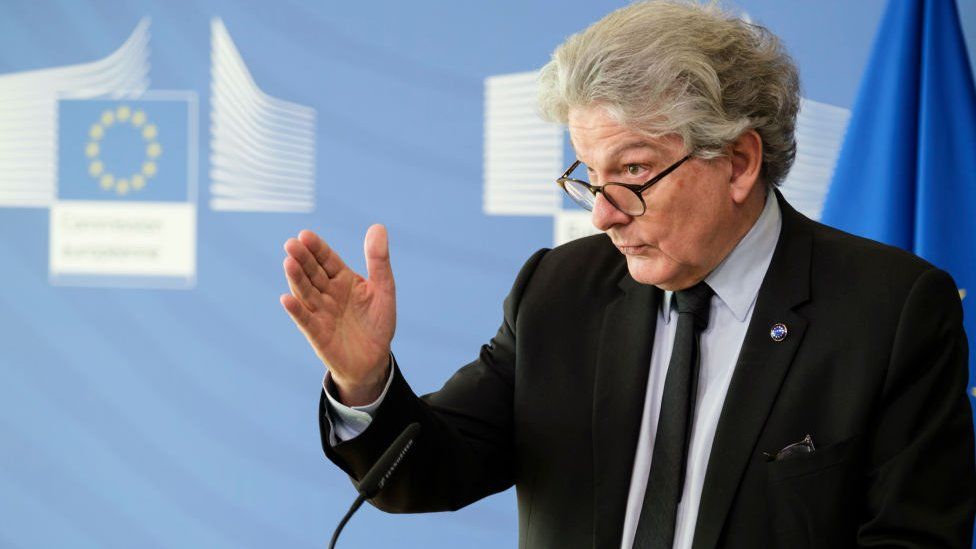-

-
-
Loading

Loading

European Union officials have reached a preliminary agreement on the world's first comprehensive regulations for the use of artificial intelligence (AI). After lengthy negotiations, rules have been established to govern AI in systems such as ChatGPT and facial recognition. The proposed legislation, known as the AI Act, will be voted on by the European Parliament in early 2022, but it will not come into effect until at least 2025. The United States, United Kingdom, and China are also working on their own guidelines for AI. Within the EU, the AI Act includes safeguards and limitations on AI use, particularly by law enforcement agencies. Consumers would be able to file complaints, and fines may be imposed for any violations. EU Commissioner Thierry Breton praised the plans as "historic," stating that they establish clear rules for AI and serve as a catalyst for EU start-ups and researchers to lead the global AI race. European Commission President Ursula von der Leyen emphasized that the AI Act will ensure the development of trustworthy technology that protects people's safety and rights. She described it as a unique legal framework for AI development that can be trusted. The European Parliament defines AI as software that can generate outputs, such as content, predictions, recommendations, or decisions, that influence the environments with which they interact. Generative AI programs like ChatGPT and DALL-E learn from large amounts of data, such as text and images from the internet, to produce new content that resembles human-created material. "Chatbots" like ChatGPT can engage in text conversations, while programs like DALL-E can generate images based on simple text instructions.